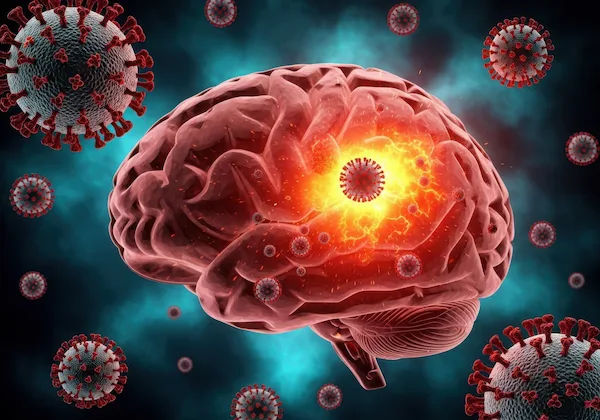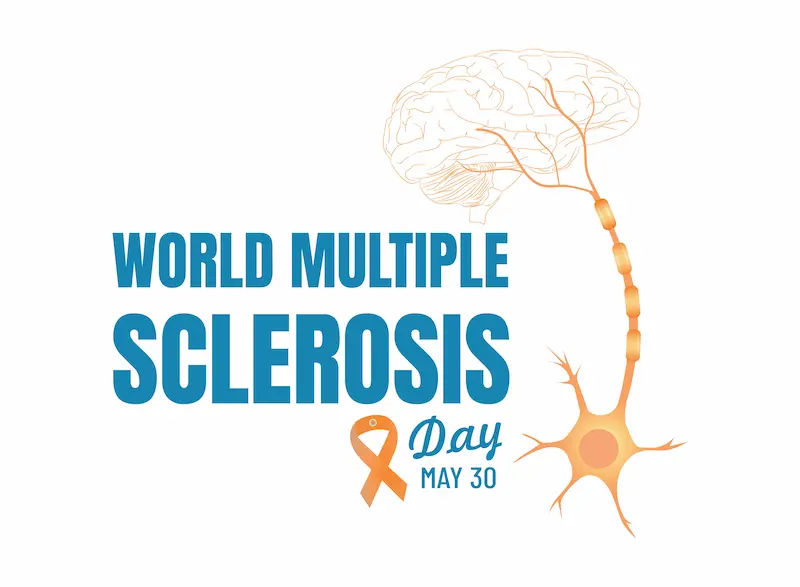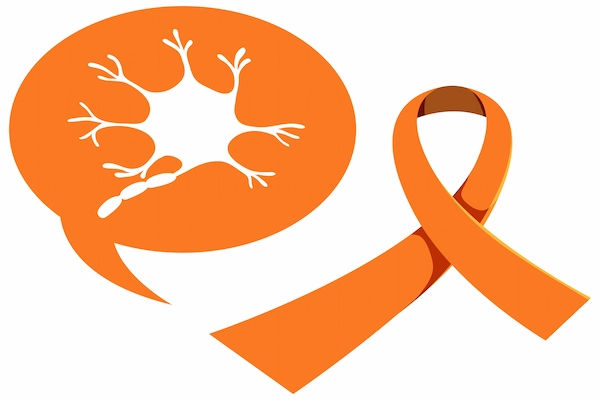Symptoms of Multiple Sclerosis in Women
Know about multiple sclerosis in women, common symptoms, how symptoms are unique for women and treatment options for multiple sclerosis.


Introduction
Multiple Sclerosis (MS) is a chronic autoimmune disease that affects the central nervous system (brain and spinal cord). While it can occur in anyone, women are two to three times more likely to develop MS than men. Recognising the symptoms early can help in managing the condition better.
In this article, we’ll discuss the common symptoms of MS in women, how they may differ from men, and what steps you can take if you suspect you might have it.
What is Multiple Sclerosis (MS)?
MS occurs when the immune system mistakenly attacks the protective covering of nerve fibres (called myelin), causing inflammation and damage. This disrupts communication between the brain and the rest of the body, leading to various symptoms.
While the exact cause is unknown, factors like genetics, vitamin D deficiency, smoking, and viral infections may play a role. Women, especially between the ages of 20 and 40, are more prone to MS.
Consult a Neurologist for Personalised Advice
Common Symptoms of MS in Women
MS symptoms vary from person to person, but some are more common in women due to hormonal influences. Here are the key symptoms to watch for:
1. Fatigue
• One of the most common and early signs.
• Feels like extreme exhaustion, even after rest.
• Different from regular tiredness—it can be disabling.
2. Vision Problems
• Blurred or double vision.
• Pain when moving the eyes (optic neuritis).
• Temporary vision loss in one eye.
3. Numbness or Tingling
• Often starts in the face, arms, legs, or fingers.
• Feels like "pins and needles."
• Can come and go or persist for longer periods.
4. Muscle Weakness and Spasms
• Stiffness in arms or legs.
• Difficulty walking or maintaining balance.
• Uncontrollable jerking movements (spasticity).
5. Dizziness and Balance Issues
• Feeling lightheaded or vertigo (spinning sensation).
• Trouble with coordination.
• Increased risk of falls.
6. Bladder and Bowel Problems
• Frequent urination or difficulty holding urine.
• Constipation or loss of bowel control.
7. Cognitive Changes
• Memory lapses or difficulty concentrating.
• Slowed thinking or trouble multitasking.
8. Emotional Changes
• Mood swings, depression, or anxiety.
• Uncontrollable laughing or crying (pseudobulbar affect).
9. Pain and Sensitivity to Heat
• Chronic pain, often in the back or limbs.
• Worsening symptoms in hot weather or after hot showers (Uhthoff’s phenomenon).
10. Sexual Dysfunction
• Decreased libido.
• Vaginal dryness or difficulty achieving orgasm.
Why Are Symptoms Different in Women?
Women may experience MS differently due to hormonal fluctuations (especially during menstruation, pregnancy, or menopause). Some key differences include:
• More frequent relapses before menopause.
• Pregnancy may temporarily reduce symptoms due to hormonal changes.
• Higher risk of osteoporosis due to MS-related mobility issues and hormonal shifts.
When to See a Doctor?
If you experience any of these symptoms repeatedly or severely, consult a neurologist. Early diagnosis can help slow disease progression and improve quality of life.
Diagnosis May Include:
It includes:
• MRI scans
• Spinal tap (lumbar puncture)
• Blood tests to rule out other conditions
Get Your Health Assessed
Tips for Managing MS Symptoms
While there’s no cure for MS, lifestyle changes and treatments can help manage symptoms:
1. Stay Active
• Gentle exercises like yoga, swimming, or walking can improve strength and balance.
2. Eat a Balanced Diet
• Focus on anti-inflammatory foods (fruits, vegetables, omega-3 fatty acids).
• Limit processed foods and sugar.
3. Manage Stress
• Meditation, deep breathing, and counselling can help.
4. Get Enough Rest
• Fatigue worsens with poor sleep—maintain a regular sleep schedule.
5. Stay Cool
• Avoid overheating—use cooling vests or fans in hot weather.
6. Follow Medical Advice
• Disease-modifying therapies (DMTs) can reduce flare-ups.
• Physical therapy helps with mobility.
When to Seek Immediate Help?
If you experience:
• Sudden severe vision loss
• Difficulty speaking or swallowing
• Extreme weakness or paralysis
Seek emergency care immediately.
Final Thoughts
MS symptoms in women can be unpredictable, but early detection and proper care can make a big difference. If you or a loved one is experiencing these signs, don’t ignore them; consult a specialist for guidance.
Consult a Neurologist for Personalised Advice
Consult a Neurologist for Personalised Advice

Dr. Aditendraditya Singh Bhati
Neurosurgeon
21 Years • MBBS(2004), DNB Neurosurgery(2014); MNAMS; Fellow Skull Base Endoscopy (Italy), Fellow Extended Skull Base ( Weill Cornell, USA), Fellow ZAP-X Radiosurgery. Member of American Association of Neurological Surgeons
Delhi
Apollo Hospitals Indraprastha, Delhi
(100+ Patients)

Dr. Ganeshgouda Majigoudra
Neurologist
10 Years • MBBS, MD ( GENERAL MEDICINE) DM (NEUROLOGY)
Bengaluru
Apollo Clinic, JP nagar, Bengaluru

Dr. E Prabhakar Sastry
General Physician/ Internal Medicine Specialist
40 Years • MD(Internal Medicine)
Manikonda Jagir
Apollo Clinic, Manikonda, Manikonda Jagir
(150+ Patients)

Dr Rajashekar Mummadi
Neurologist
3 Years • MBBS, DNB General Medicine, DRNB Neurology
Hyderabad
Dr Ram's Neuro Clinic, Hyderabad

Dr. Anusha D
Neurologist
16 Years • MBBS, MD, DM (Neuro), DNB (Neuro)
Chennai
Apollo Speciality Hospitals OMR, Chennai
(125+ Patients)
Consult a Neurologist for Personalised Advice

Dr. Aditendraditya Singh Bhati
Neurosurgeon
21 Years • MBBS(2004), DNB Neurosurgery(2014); MNAMS; Fellow Skull Base Endoscopy (Italy), Fellow Extended Skull Base ( Weill Cornell, USA), Fellow ZAP-X Radiosurgery. Member of American Association of Neurological Surgeons
Delhi
Apollo Hospitals Indraprastha, Delhi
(100+ Patients)

Dr. Ganeshgouda Majigoudra
Neurologist
10 Years • MBBS, MD ( GENERAL MEDICINE) DM (NEUROLOGY)
Bengaluru
Apollo Clinic, JP nagar, Bengaluru

Dr. E Prabhakar Sastry
General Physician/ Internal Medicine Specialist
40 Years • MD(Internal Medicine)
Manikonda Jagir
Apollo Clinic, Manikonda, Manikonda Jagir
(150+ Patients)

Dr Rajashekar Mummadi
Neurologist
3 Years • MBBS, DNB General Medicine, DRNB Neurology
Hyderabad
Dr Ram's Neuro Clinic, Hyderabad

Dr. Anusha D
Neurologist
16 Years • MBBS, MD, DM (Neuro), DNB (Neuro)
Chennai
Apollo Speciality Hospitals OMR, Chennai
(125+ Patients)





